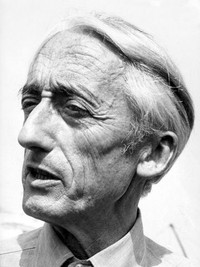Jacques-Yves Cousteau

Jacques Cousteau's name has become synonymous with underwater photography. He pioneered the development of waterproof cameras in the mid-1930s and continued to produce documentaries into the 1990s. The French-born Cousteau attended the Ecole Navale in Brest with the intention of becoming a Naval pilot. He served tours in Asia before an automobile accident ended his naval career. Cousteau began experimenting with underwater filming in the mid-1930s and following WWII he established the Group for Undersea Research. He won the CIDALC Prize at the 1946 Cannes Film Festival for his short "Epaves/Wrecks." By 1950, he had refitted a WWII minesweeper as a floating oceanographic institute and rechristened the ship the Calypso. Cousteau and Louis Malle co-directed the 1956 feature documentary "Le mode du silence/The Silent World," which earned the Palme d'Or at Cannes and a Best Documentary Oscar. Subsequently, Cousteau won two more Academy Awards for 1959's short "The Golden Fish" and 1965's documentary "Le monde sans soleil/World Without Sun." He also co-directed and wrote the 1976 feature documentary "Le voyage au bout du monde/Voyage to the End of the World" (1976). In 1954, the year he co-developed the first automatic deep-undersea photographic equipment, Cousteau made his American television debut on the January 17 episode of "Omnibus" (CBS). Ten years later, he began an affiliation with ABC and produced numerous award-winning specials under the umbrella title of "The Undersea World of Jacques Cousteau." In the mid-80s, Cousteau shifted allegiance to the Turner Broadcasting System (TBS), for whom he continued to provide original programming until shortly before his death in June 1997.